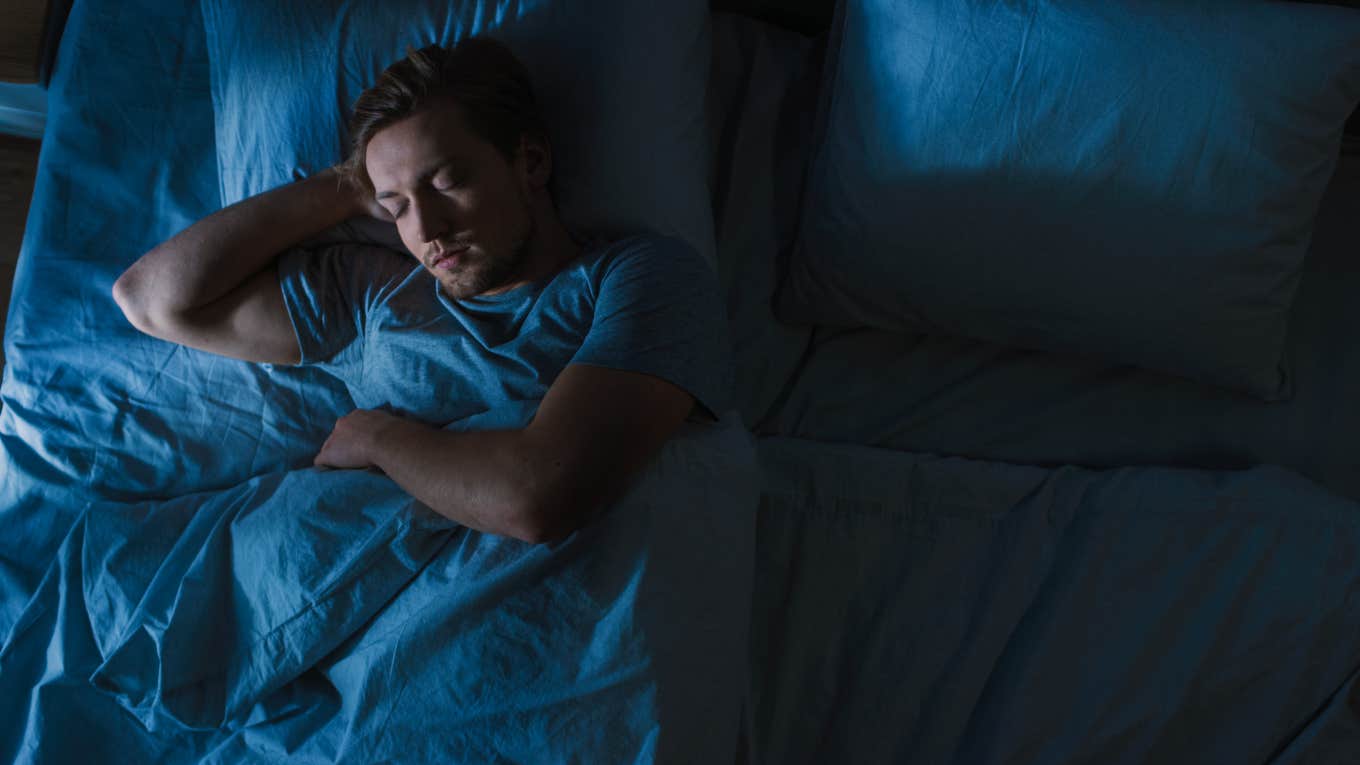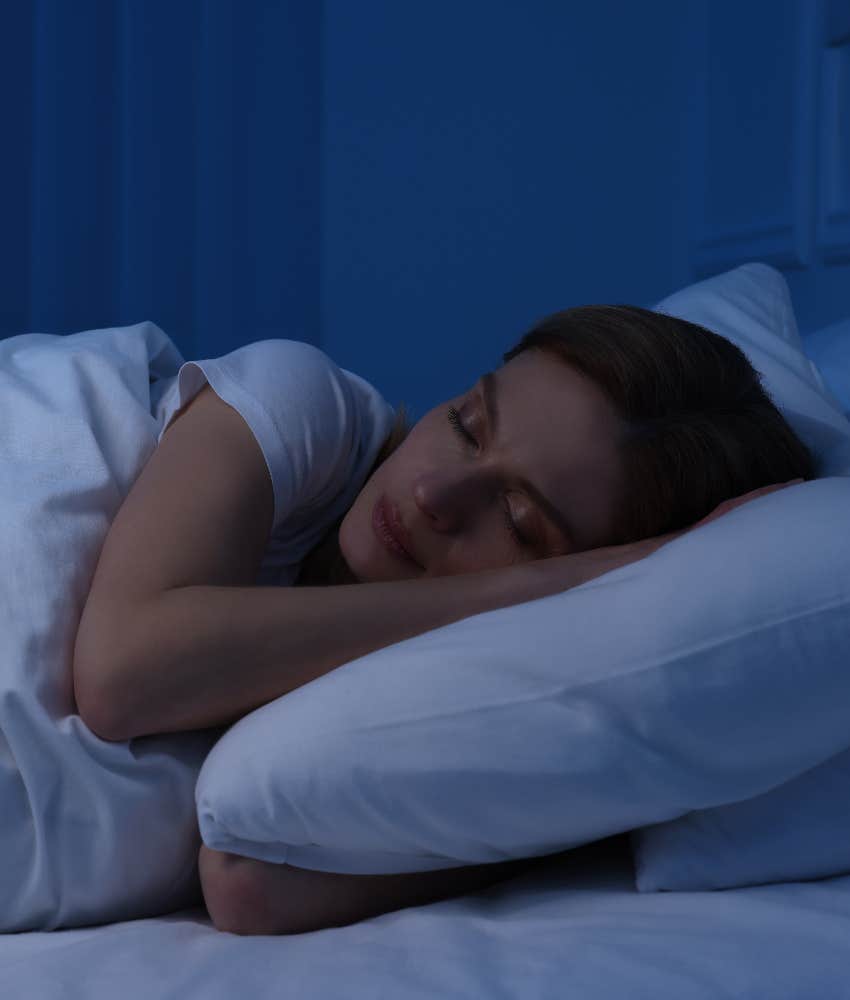If You Usually Fall Asleep In Less Than 10 Minutes, Your Brain May Be Trying To Tell You Something Important
It's your body crying out for help.
 Gorodenkoff / Shutterstock
Gorodenkoff / Shutterstock If you're anything like me, you fall asleep in specific stages. First is wind-down time, where I'll read a book, watch a show, or scroll on my phone (even though I know it's bad for me). This lets my body begin to relax and my mind to quiet down from the hustle and bustle of the day.
Yours may look a little different, but most people develop some kind of nightly routine or ritual that lets their body know that it's time to get ready to go to sleep. Unless of course you're one of those people who just knocks out as soon as your head hits the pillow. If that's the case, however, you might want to listen up. You're body could be trying to tell you something very important.
If you often fall asleep too fast, it could signal sleep deprivation or other medical conditions.
Every person varies slightly in how long it takes for them to fall asleep. While some seem to knock out before they even hit the mattress, others have to think about every single social interaction they had that day before they can finally relax and drift off. Sleepfoundation.org claims that "Most healthy people fall asleep within 15 to 20 minutes of lying down."
 New Africa | Shutterstock
New Africa | Shutterstock
While falling asleep quickly sounds nice in theory, it can actually be a sign that something is wrong. Often, it means that someone is sleep-deprived, or they're not getting the sleep they need to function properly. The body begins to take over the longer someone stays awake, and the urge to sleep gets stronger, causing them to fall asleep faster than a well-rested person.
There are certain medical conditions that may also make you feel overly sleepy or fatigued. This could include brain injuries, nervous system disorders, conditions that affect the heart and lungs, or even mental health issues like stress, anxiety, and depression.
Sleep is one of the most important factors in your health and overall well-being.
Sacrificing a few hours of sleep frequently may not seem like a big deal, but it could be affecting you in more ways than you realize. Mayo Clinic says that lack of sleep can make you more likely to get sick because your immune system produces proteins, antibodies, and cells while you rest that help fight infection or inflammation. Long-term sleep deprivation can also lead to more serious health complications such as increased risk of obesity, diabetes, high blood pressure, stroke, and heart disease.
Harvard Health recommends that adults get roughly seven hours of sleep each night. Eric Zhou with the Division of Sleep Medicine at Harvard Medical School said this number isn't strict, and that "Some people need less than seven hours, while others might need more."
However, the number of hours you sleep isn't the only thing to consider. Zhou added, "Instead of focusing exclusively on the number of hours we sleep per night, we should also consider our sleep quality."
Improving your sleep quality can significantly improve your life.
Regardless of how fast or how slow you naturally fall asleep, there are steps you can take to ensure you get the best sleep every single night. Healthline suggests setting consistent habits to practice healthy sleep, like trying to go to bed at the same time every night and sleeping without distractions.
 AYO Production | Shutterstock
AYO Production | Shutterstock
If you're a caffeine drinker, try to avoid it in the afternoons and evenings or switch to decaf. And speaking of eating and drinking, do it well before bedtime. Late night snacking can cause digestion problems and interfere with your sleep.
We've all had a night where we can't fall asleep no matter what we do, tossing and turning for hours. When this happens, try to reset. Turn the light back on and do a relaxing activity like listening to music, reading a book, or meditating until you feel yourself becoming sleepy.
Kayla Asbach is a writer currently working on her bachelor's degree at the University of Central Florida. She covers relationships, psychology, self-help, pop culture, and human interest topics.

